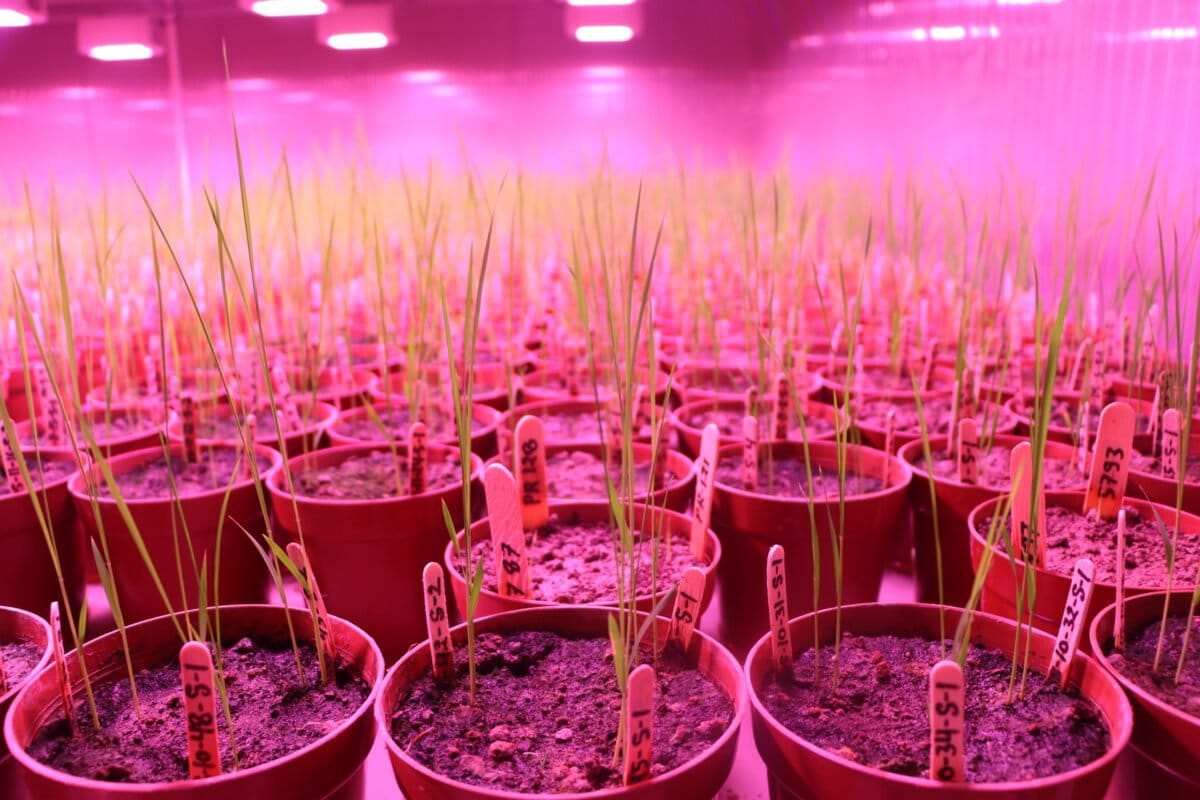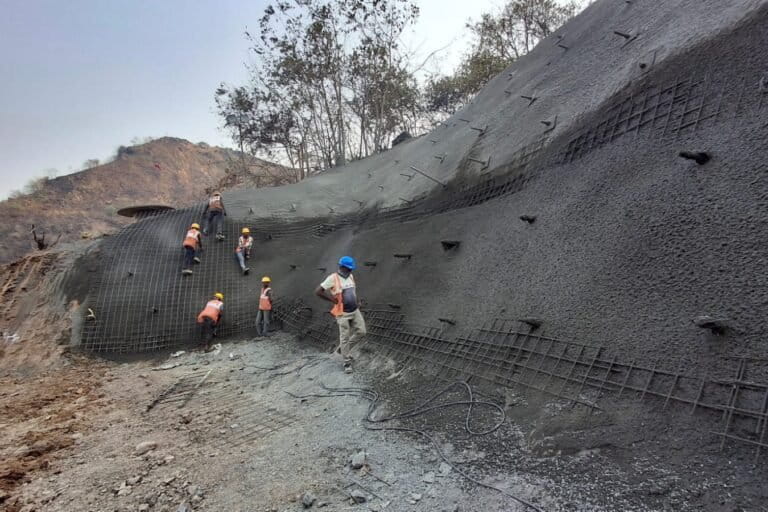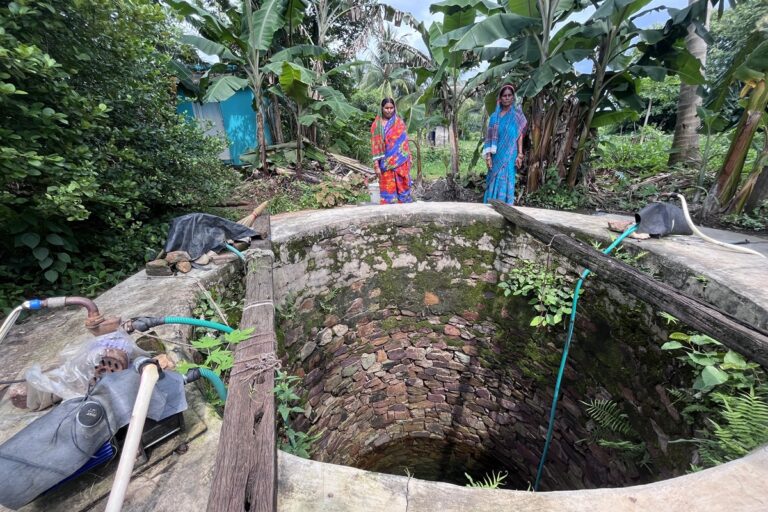- The Karnataka government, through an ordinance, amended the Land Reforms Act to enable higher landholdings of a little over 200 acres per family who can be non-agriculturists also.
- This amendment has been preceded by changes to other legislations that will help industrialists.
- More than 80 percent of the farming community are small and marginal in Karnataka.
- Farmers’ organisations had given a memorandum to the governor and various protests were held to stop this ordinance.
Ups and downs don’t seem to end for the farming community in Karnataka. After the COVID-19 associated lockdown caused severe losses to the farmers, whose produce got spoilt in the fields in March and April, the news about a good monsoon had them pretty hopeful. Now, after a good start of monsoons and a possibility of a bumper crop, the farmers – small and marginal – have been dealt with a blow through the amendment of the Karnataka Land Reforms Act of 1961.
After a slew of reforms to various laws to boost the economy (labour laws, environmental laws, acquisition laws and so on), the state government has done away with 79 (a), (b) and (c) of the Karnataka and section 80 of the Land Reforms Act 1961 to allow non-agriculturists to purchase farmlands. It has also amended section 63 increasing the ceiling, to allow one family to own a little over 200 acres. Additionally, the ceiling on an income of Rs. 2.5 million (Rs. 25 lakh) for a non-agriculturist will be removed.
In the past few years, different amendments pertaining to the purchase of agricultural land have been passed. The Congress government in Karnataka, led by Siddaramaiah, had amended the Act in 2015 and increased the income limit from non-agricultural sources to purchase farmland from Rs. 200,000 (Rs. 2 lakh) to Rs. 2.5 million (Rs. 25 lakh). The income limit was fixed to prevent the misuse of farmland.
A few months ago, in a pro-industry push, the B.S. Yediyurappa-led government had amended the Act allowing acquisition and conversion of agricultural land for industrial purposes within a 30-day time frame. More recently, the government also allowed the Agricultural Produce Marketing Committee (APMC) Act, allowing the farm produce to be sold outside of the APMC, which also saw opposition.
Bring all this to the notice of Prakash Naik, a farmer based in Belgaum with land near Karwar, who has just finished sowing for the present Kharif season, and he gets emotional. “The soil is so fertile, madam, that people ask for masoor dal, which is grown in and around Belgaum. In Karwar, we have exclusive rice varieties which are very special which grow in saltwater. Will you just remove all this for a factory? And reduce us to workers who actually cannot work in industries anyway? This particular amendment will reduce us to nothing.”
Farmers activists from various organisations are highlighting different aspects of implications that are both far-reaching and permanent. “Earlier also amendments happened but they did not affect much. What they are planning now is very serious. Agriculture is not just a job or a profession. It provides food and employment for the majority of rural people. When we say one farmer works, his entire family is involved in the farm,” said K. T. Gangadhar from the farmers’ movement Karnataka Rajya Raitha Sangha (KRRS). “The women and the other members of the family have different roles in the seasonal cycle and animal husbandry. By giving employment to one member of the family in some factory is not the same. Moreover, they are not educated enough for outside employment. The structure of the family (with several people involved and employed), food output and employment will collapse.”
Activists point to past examples of acquisition and displacement where farmers are reduced to landless labourers after selling their land and using up the compensation money for marriages, past loans and sometimes, short term, short-sighted investments. There is hardly any help in terms of counselling or capacity building for the displaced. This impact on the farming community may be considered “manageable” or an “individual” problem. However, there is no escaping the impact on the environment and ecology of the region, which is already under stress because of hybrid farming and depleting water tables.
Environment and ecology
H. Manjunath, of School of Natural Farming, Karnataka, warns of further depletion of groundwater and imbalance in ecology if the land is given for corporate farming or industrial purposes, “It is important to understand the possible impact of this move on the ecology of the region also. There is already a push for hybrid and genetically modified crops and the soil is under stress. The impact on the water table if industries come or if corporate farming is encouraged will be disastrous.”
According to a memorandum given by a collective of farmers’ organisations “Land degradation and desertification are the major concerns in Karnataka. As per the Desertification Atlas by the Indian Space Research Organisation, 36.24 percent of (Karnataka’s) land has already been degraded due to over-exploitation of agriculture lands, soil and water. If the proposed amendments via the ordinances are made, then the competitive exploitation of ground resources will increase. As of now, most of the villages have gone more than 800 feet for underground water. The suggested reforms and amendments will render land to see become only investment commodities and thereby subject to exploitation by advanced chemicals, mono-cropping, heavy water use, and hybridization etc. This will further have a cascading effect on land degradation and underground water in the coming years.”

Yathiraju C., an environmentalist associated with Tumkur Science Centre, pointed out that the narrative of small farms being unviable was to encourage corporate farming. “More than 80 percent are small and marginal farmers in Karnataka. Shouldn’t the focus be on empowering them rather than constantly pushing the narrative that farming can’t be done on small lands?”
Those involved in organic farming and agricultural science note that small lands work very well for natural and organic farming if the farmers get support prices and supply chain assistance. Yathiraju also emphasised that at present non-agriculturists can buy land for organic farming with official permissions. The removal of all limitations will only aid corporate farming or industry and is about individuals, he repeated.
G.C. Bayya Reddy, associated with farmers organisation Karnataka Prantha Raitha Sangha, echoes and further adds, “In the past 3-4 years different amendments have been made to different acts – be it by Congress or BJP. This is in continuation and more are in the pipeline such as the model lease act proposed by the Niti Aayog. They don’t want small and marginal farmers in agriculture who are 85 percent of the community. Their argument is that modern agriculture practice is not possible. So they want to hand it over to big and capitalist farmers and bring agriculture under corporate. But peasantry-based agriculture should remain because more than 50 percent of the population is still directly employed by agriculture. Food and food grains is a big industry. Corporates are interested in marketing of industry but domestic needs will not be considered.”
Industry hails the decision
However, much of this is rejected by the industrialists and political leaders who are pushing for various reforms. Mohandas Pai, chairman of Arin Capital and a veteran of the IT industry, said, “It will have a positive impact. Farmers’ best asset is land and 24 percent of the land is fallow. They need the freedom to be able to sell the land if they want to. Industry can buy land. It is a bogus theory that land is not available for food. Only nine percent land is occupied by the industry. Farmers are not illiterate. They know much more about land and value.”
Several industrialists and political leaders have spoken about farming not being viable for small and marginal farmers because of difficulty in mechanised farming on smaller plots. “They will not earn money because it is uneconomical. They have an emotional attachment but if more industry comes, there will be more jobs. As regards environmental impact – those who do organic farming will only improve the environment and all other industry is also subject to environmental regulation. We may have problems in implementing. But we can set up a non- polluting industry,” said Pai.
He added that there are several people in the cities, who want to buy land and allow the natural forest to come up. “Karnataka has 1 lakh 92 000 km, which is enough land to grow our own food but low productivity. We can double or triple food production with intensive farming. The activists are creating victimhood narrative. Most of the farmers don’t want their children to be farmers. A farmer’s per capita income is Rs. 75,000 whereas in the industry it is Rs. 225,000 and Rs. 300,000 in the service industry,” he said
BJP Karnataka spokesperson S. Prakash said, “Farmers have to make judicious choices. We cannot underestimate the rural youth. They don’t want to practice agriculture anymore. Industry will only help them get jobs.” Several calls and messages over a period of one week to state agriculture minister B.C. Patil and revenue minister R. Asoka went unanswered.
Some politicians are trying for a middle ground, such as Venkatrao Ghorpade of the Congress party. “I believe the move will be beneficial to the farmers provided there are safeguards in place. There should be no speculative buying, so that fears of landbanks are allayed. There must be fair compensation, jobs for the families of farmers if the land is taken for industrial purpose. One must make sure that the farmers are not cheated,” he said.

But is there a middle ground if it is not a level playing field? No matter what different stakeholders say, there is no turning away from the endemic poverty among small and marginal farmers, which leads the farmers to mortgage, borrow from private money lenders and sell their lands. Activists and farmers say, with this amendment, the pressure or the haste to sell off for financial requirement will be very high, leading to future unemployment and destitution.
Farmer Prakash Naik was actively supporting and participating in the planning of protests by farmers’ organisations across the state – complying with COVID-19 restrictions – to demonstrate before panchayat offices, hoping that the amendment will not be implemented. He called this correspondent a day after his interview – “Madam I wanted to describe this in just two words – it is a death sentence.”
Banner image: Sowing in Hosadurga taluka, Chitradurga. Photo by Nawaz Heggere.














